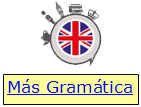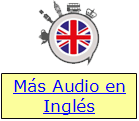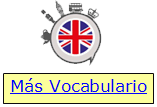Grammar: Uses of the impersonal pronoun
‘it’
It’s a lovely day, isn’t it? – ‘It’ is ‘the day’.
In English, verbs need a subject. In this example we use the verb “to
be” – IS, so we need the subject pronoun ‘it’ = ‘It’s a lovely day’ (IT
IS a lovely day)
“It’s sunny” (it = the weather)
It’s snowing, it’s raining,
“It’s a good thing you’ve come.”
“It was lovely to see you yesterday.” / “it was lovely seeing you
yesterday.” or “Seeing you yesterday was lovely.”
“It is nearly always sunny in Valencia.”
‘It’ can be used as a subject to an
impersonal verb.
‘What time is it?’ – ‘It’s 2.’
“It was a surprise that we met last week.” – ‘IT’ is the surprise.
The pronoun “it” is used as a
‘provisional’ subject, when the real subject is an infinitive or a
gerund.
It’s difficult to live with her. (to live with her is not easy)
It’s great fun recording these podcasts (recording these podcasts is
great fun)
It can be used with certain adjectives,
“It’s worth visiting Granada.” (to be worth = merecer la pena / valer la
pena)
“It’s no point worrying about it.” (no point = no tiene sentido)
“It took us a long time to get here.”
“It takes two to Tango.” (se necesitan dos para bailar un tango)
“Peter, not John, ate my piece of cake.” – “It wasn’t John who ate your
piece of cake, it was Peter.”
It is used to represent a noun.
“I am taking my phone back to the shop because IT doesn’t work.”
“Who is it?”
“It’s Reza on the phone.”
“It’s Reza.”
It can also be used for animals and pets.
“Reza loves Berta the greyhound. It’s almost human.”
I won’t kill my chicken because it gives me eggs every day.
It is used for emphasis before a noun or a
pronoun.
It was Reza who broke the glass.
It was Craig who made the tea.
It was Bob Marley who wrote the song “No woman, no cry”.
It can be used to refer to something that
has been said before:
I decided to come to Valencia in 1997. It was one of the best decisions
I’ve ever made.
Vocabulary: Dentists
Reza has recently had a tooth taken out.
a brace = un aparato
tooth (singular) – teeth (plural)
to make an appointment – pedir una cita
to go for a check up (to have/get your teeth checked – the causitive)
check up = revisión, chequeo
to have/get a tooth taken out
Reza had an infection cleaned up
You can have your car fixed (The causitive – HAVE / GET + object + past
participle)
Have your hair cut
Have your eyes tested
I have had a tooth removed. (the first ‘have’ is the present perfect ‘have’.
The second ‘have’ – had – is the causitive ‘have’)
I’ve had my hair cut
I’ve had my flat cleaned
a filling – empaste – I’m having a tooth filled
to have/get a filling / to have/get a tooth filled
crown = corona
to drill – taladrar
to have a toothache (dolor de muelas)
an injection – inyección
numb – adormecido, insensible
gums – encías
false teeth (dentures) – dentadura postiza
an implant – implante, prótesis
wisdom tooth – muela del juicio
plaque – placa
to brush your teeth – cepillarse los dientes
to floss (your teeth) – usar hilo dental
toothbrush – cepillo de dientes
toothpaste – pasta de dientes
mouthwash – enjuague bucal
Craig and Reza’s Weekly wind-ups ( to wind up = annoy, irritate, bother:
fastidiar, disgustar, molestar)
Craig thinks that camping is only useful if you have very low budget, or
want to go to a place that’s off the beaten track, like a pop festival
for example.
Reza doesn’t like pedestrians who take up the whole pavement (acera) and
don’t let you get past.
 *Dispones
de más
PODCAST en inglés publicados en los cuadernos anteriores *Dispones
de más
PODCAST en inglés publicados en los cuadernos anteriores
a los que puedes acceder directamente así como al índice de su
contenido. |



 *Dispones
de más
*Dispones
de más


